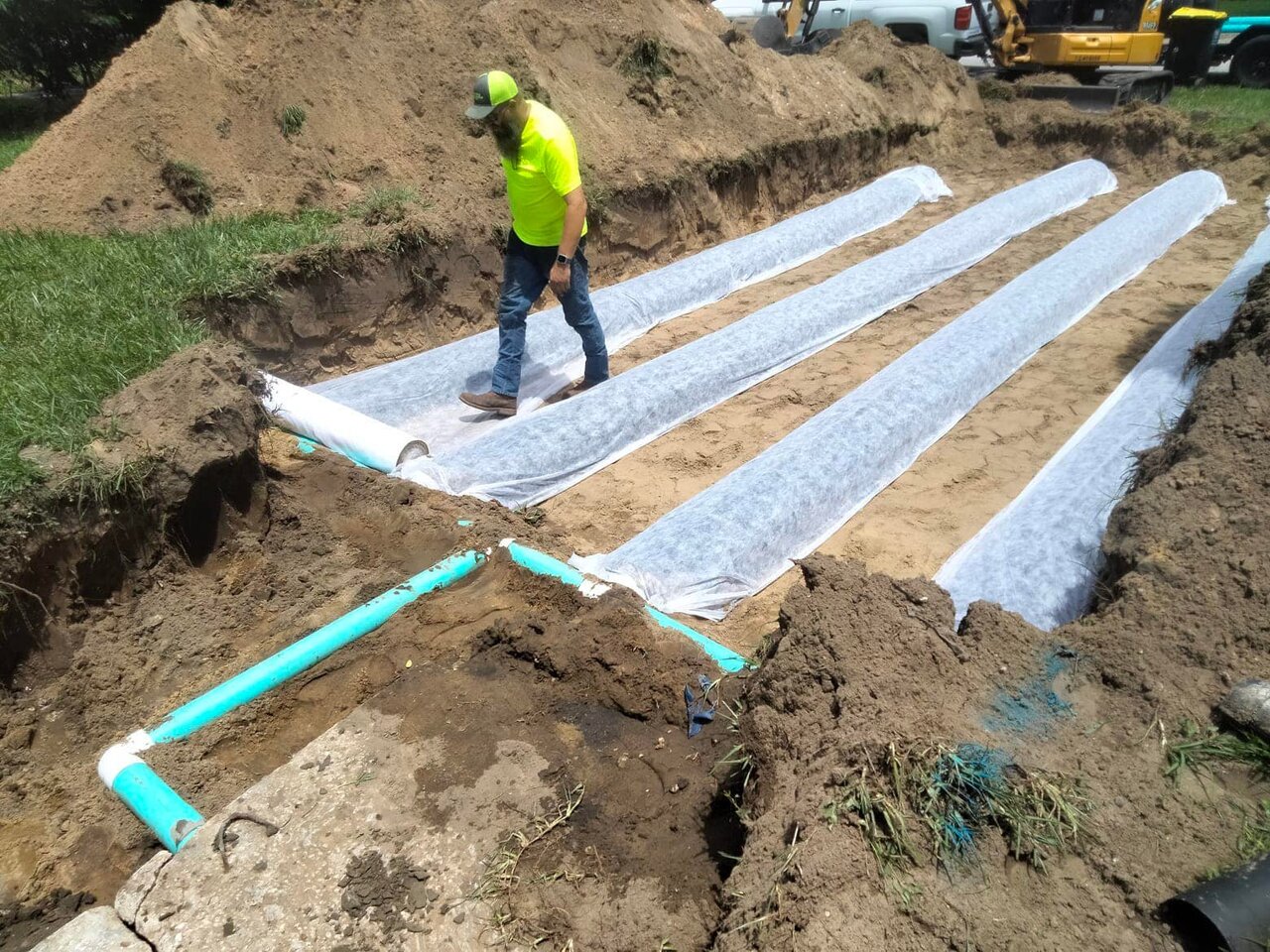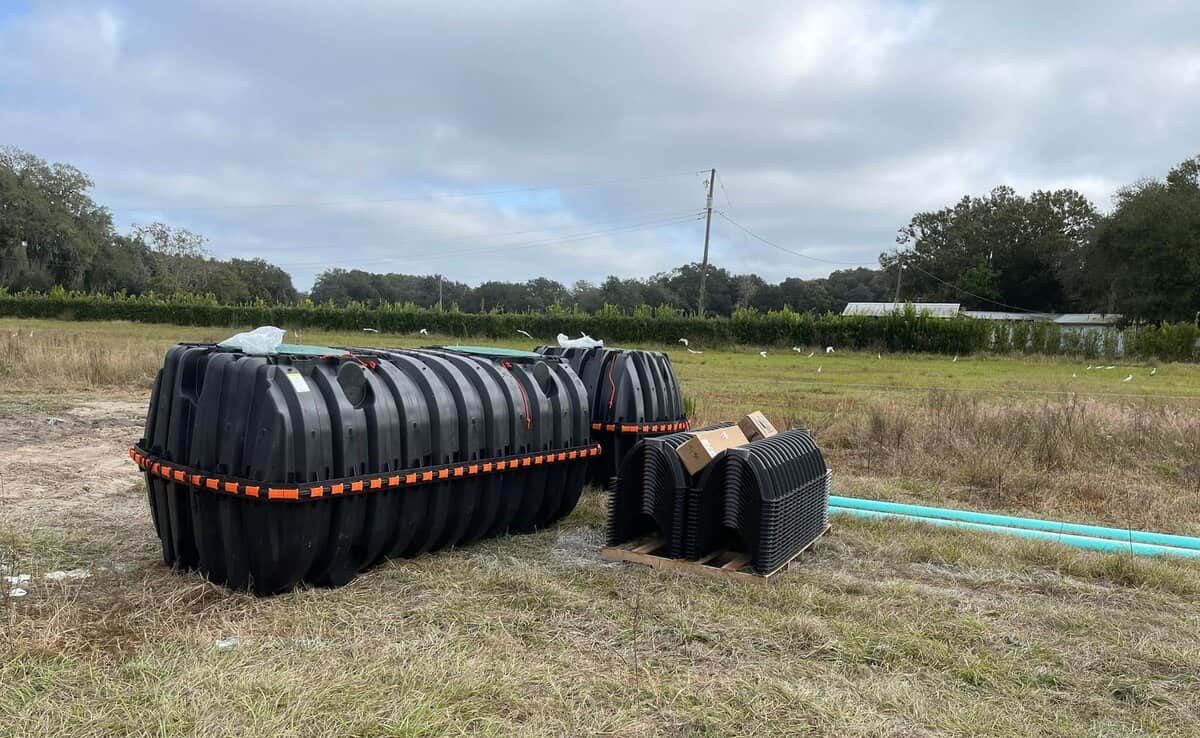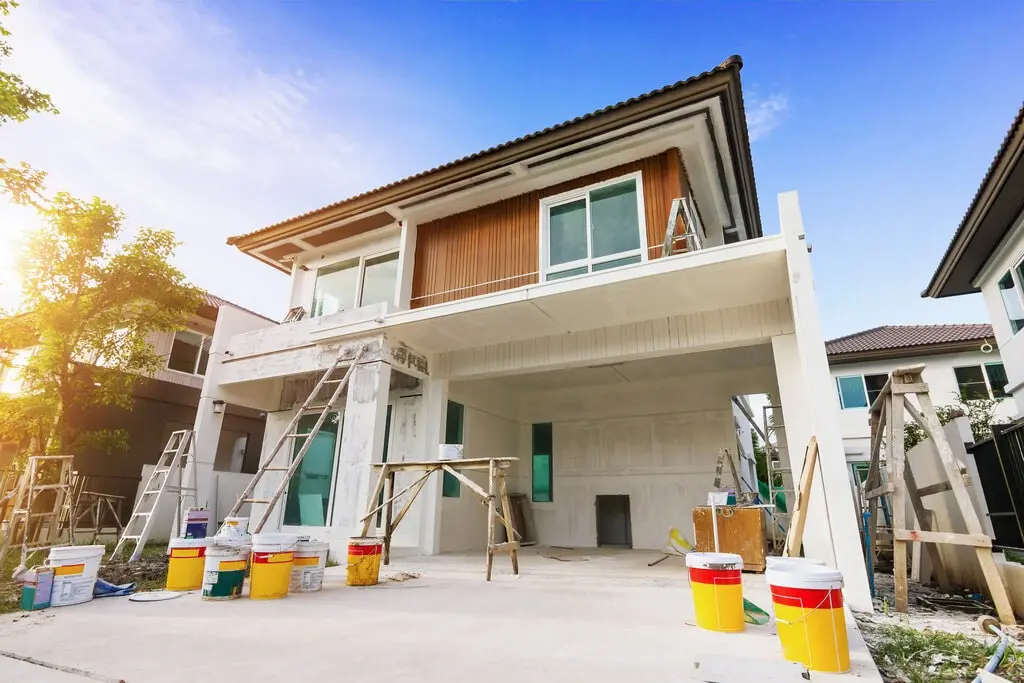If your home has a septic system, you know that one of the guidelines is to avoid flushing fats, oils, and grease down the drain. This is because they can cause clogs in the pipes or drainfield, or create issues with the ability of the septic tank to process the wastewater coming from your home.
Why You Should Not Flush Oil or Grease Down the Drain
Oil and grease are forms of non-biodegradable material. In a septic tank, they will not break down due to a lack of oxygen and bacteria present in the environment.
Instead, the oil or grease will eventually form a thick layer on top of the wastewater, blocking it from leaving the tank. This will cause issues with other plumbing components, like toilets and drains that are tied into the system. The buildup can also lead to sewer backups in your home or property damage if there is an underground septic drain field installed on your property.
Fats, oils, and grease can be a major issue for your septic system if they make their way into the septic drain field. If these materials enter the underground pipes, they can create blockages that prevent wastewater from passing through. This can result in slow drainage or flooding of your yard as the water has nowhere to go.
The presence of oil and grease also disrupts the natural filtration process of the soil surrounding the underground pipes, making it more difficult for efficient wastewater treatment to take place. To avoid this problem, it is important to regularly inspect your system for any signs that oil or grease is present and to properly dispose of all cooking oil and grease instead of flushing them down the drain.
How to Dispose of Cooking Oil and Grease Safely
There are a few good ways to dispose of oil and grease safely.
Chill and Trash
The best way to dispose of fats, oils, and grease from cooking is to pour them into a heat-safe container once they are cooled down properly. Once you have filled the container, it can be disposed of in the trash.

Recycle
If you have a lot of oil or grease to dispose of, you may want to consider recycling it. There are companies that will take used cooking oil and recycle it into biodiesel, which can be used as an alternative fuel source. To find out if there are any businesses in your area that offer this service, contact your local recycling center or waste management department.
Reuse
Cooking oil can be reused. Simply filter the oil after it has cooled and store it in a sealed container to be used again for cooking at a later time. (Note that cooking oil will eventually go bad, which will be evident by the smell and if it feels tacky instead of slick.)
What Is a Septic Grease Trap?
A septic grease trap is a device installed in the plumbing system to help prevent cooking oils and grease from entering the septic tank. Grease traps are often used in restaurants and other commercial operations that generate large amounts of cooking waste, but they can also be used in residential homes.
Grease traps work by slowing down the flow of water and allowing the grease and oil to rise to the top where it can be skimmed off before entering the septic tank. This helps to reduce the amount of build-up in the septic system and prevents clogs from forming in the pipes or drain field.
If you are considering installing a septic grease trap, it is important to have it sized properly for your needs. If it is too small, it will not be effective at trapping all of the grease and oil. If it is too large, it will take up too much space and may be more difficult to maintain.

The Importance of Septic Tank Pumping
When wastewater from your home enters the septic tank it separates into 3 layers. The heavier solids sink to the bottom, and the liquid water forms the middle layer. If fats, oils, or grease do get flushed into your septic tank, they will float to the top because they are lighter than the wastewater and solids. This layer of sludge is normal, but too much can be problematic.
Regular septic tank pumping can help alleviate this by removing the sludge layer and any buildup of oil or grease. It is important to have your septic tank pumped by a septic professional at least every 3-5 years, depending on usage and size. This will help to ensure that your system remains healthy and functioning properly.
Here is what happens when a septic company cleans your septic tank:
- An inspection of the access area to the septic tank will be made.
- The access cover on the tank will be located and removed.
- The sludge and scum layers in the tank will be measured and pumped out as necessary.
- The baffles, if present, will be inspected for damage or blockages that could cause problems with performance.
- The interior walls of the tank will be inspected for any damage or cracks that could allow water to escape into the soil disposal area.
- After pumping, any needed repairs or maintenance to the components of your septic system will be completed before it is put back into operation.
It is important to have your septic tank pumped on a regular basis to prevent problems from occurring. A buildup of sludge can lead to clogs, blockages, and even sewage backups in your home. Pumping your septic tank regularly will help to avoid these issues and keep your system working properly.
The Best Septic Company In & Near Lakeland
Septic and Drainfield Depot is the best choice as a septic company in and near Lakeland.
We offer a full range of septic tank services, including pumping, cleaning, maintenance, and installation. We also install and service drain fields and lift stations.
Contact us today for a Free Septic Estimate!







